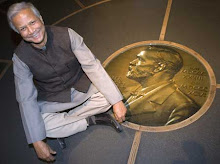Meet Senen Bacani. He is 61. He graduated from De La Salle University, commerce, summa cum laude. He has an MBA from the University of Hawaii East West Center, 1968. He used to be a secretary of agriculture. He is now chairman and president of La Frutera, Inc. Last week SGV Ernst & Young declared him the 2006 Entrepreneur of the Year, besting more than 50 other aspirants.
Senen started his career in Dole Food Co. in Honolulu after graduating with his MBA. Over the next 20 years, he quickly rose from the ranks, becoming country manager of Dole in Costa Rica and in the Philippines. In 1989, the then 41-year-old technocrat was appointed secretary of agriculture by President Corazon Aquino, herself a sugar-plantation owner.
Senen and his colleagues, however, wanted to operate their own banana plantation. They approached Chiquita Unifrutti International, a Middle Eastern family-owned business that had plans of introducing Chiquita bananas to the Japanese market.
He saw potential in the Autonomous Region in Muslim Mindanao (ARMM), with its fertile and undeveloped land, good climate, and readily available and cost-efficient workforce. However, during his visits to the ARMM, he became concerned about resolving the separatist rebellion in Mindanao.
Senen convinced Chiquita Unifrutti that the region, although farther from ports, paid lower wages and promised higher productivity. In 1996, Ultrex and Chiquita Unifrutti established La Frutera, Inc., a 1,000-hectare Cavendish plantation in Buluan and Datu Paglas, Maguindanao.
La Frutera was the first large-scale banana plantation in the ARMM. Ultrex and Chiquita Unifrutti formally agreed to a 20-year contract wherein Chiquita Unifrutti would buy La Frutera’s bananas, market them under the Chiquita and Unifrutti brands, and then export them abroad.
Senen’s partner is Datu Paglas, a former rebel leader who has his own business firm, Paglas Corp. “The business is good,” Paglas told me.
There are 45,000 hectares of banana plantations in the country. Among them is La Frutera. It is one of the top 10 percent banana farms in terms of production per hectare, cost per box, and quality of products in the market. It exports bananas to Japan, Korea, China and the Middle East. La Frutera is the only banana plantation in the country certified by both the Rainforest Alliance (since 2003) and ISO 14001 (since 2005).
La Frutera employs 1,745 people, 90 percent of whom are Muslims and 10 percent are Christians. Among the staff are a few hundred former rebels of the Moro National Liberal Front and the Moro Islamic Liberation Front. Many of the middle-level management positions are now occupied by Muslims.
Over the past 10 years, La Frutera has shown how a business model can succeed in a conflict-ridden area previously bedeviled by lawlessness, underemployment and interethnic violence. He believes that providing jobs, especially in rural areas, is the direct and sustainable way of alleviating poverty.
“We can’t keep on waiting for peace to come first. The reason why there’s no peace is that there’s no development.” –Senen Bacani
Source : http://www.manilatimes.net/



Senen,
ReplyDeleteI was glad to read in the Aloha News that you have been appointed to the Peace Panel, and delighted to find this website with a good account of your endeavors since leaving Costa Rica.
The Moro struggle has long interested me. I wrote an award-wining, but yet unagented novel, LAWLESS ELEMENTS, about an American businessman sleeping with a Moro dissident in Davao. (He's a regional materials manager working for Apex Fruits.) See more at www.gregbascom.com.
Best wishes,
Greg Bascom (still in Costa Rica)